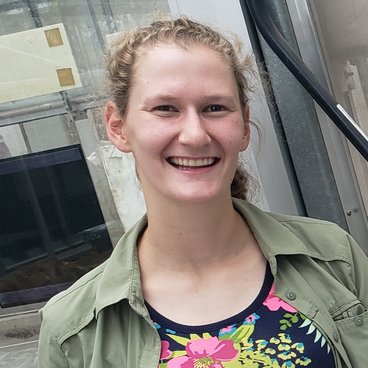By Elizabeth Boor

Ever since I was young, I have had a passion for the environment. I grew up on a sustainable vegetable farm just outside of Hutchinson, Minnesota. Growing up, gardening was the structure in which I learned. My mom taught me how to interact with the environment without destroying it. We swatted potato beetles into buckets of water and hand-picked every weed. I was taught to work with the land instead of bending it to my will.
Going to the University of Minnesota, Duluth for Environmental Science was a no-brainer for me. I wanted my career to be fulfilling—making meaningful change for my community through improving the environment. I intended to go straight into the field when I graduated. That didn’t pan out—I graduate in the plague year of 2020. There were absolutely no jobs, everyone was downsizing as a safety precaution for COVID. Luckily, I found out there was an AmeriCorps program called “GreenCorps” in Minnesota. The program is designed to give young professionals skills in green careers while helping areas in need. I quickly signed up and was placed with the Nine Mile Creek Watershed District. I loved working there—I still do as a part-time intern. I worked with the education and outreach team focusing on chloride management and reduction. I knew within a few months in the program that I wanted to work full-time doing this kind of work. My mentor and supervisor had a Master’s Degree in Water Resources Science and for me, the next logical progression was to follow in her footsteps through the program.
While investigating the program, I was thrilled to discover Dr. Heger’s research. Her presentation at the Minnesota Water Resource Conference focused on water treatment via septic tanks. She talked about how residents, private companies, and state and local governments can make changes to ensure wastewater is recycled safely. Her research aimed to answer the important questions—what pollutants are passively entering the environment through soil infiltration and what pollutants might be escaping the water treatment process? Her goals of protecting the environment and human health as well as her area of research tied all my educational and personal passions together. So, I immediately contacted her and inquired whether I could be involved in her research in the Onsite Sewage Treatment Program. Fortunately, I was offered a position as a Water Resources Fellow at the University with Dr. Heger as my advisor. I have completed one year in my Master’s program and am well into my thesis research.
I was drawn to this program and research because I have a passion for water resources management. I’ve learned over the past six years of continuing my education that surface waters are extremely interesting! Water is an undeniably important resource for people and the environment in general and there are so many ways that we interact with it. For this reason, it is important to me that I help manage and protect water for future generations. Completing this program is the next big step in my career and I know that I am making a meaningful impact on my community as I help build the knowledge bank of water pollution across the state.